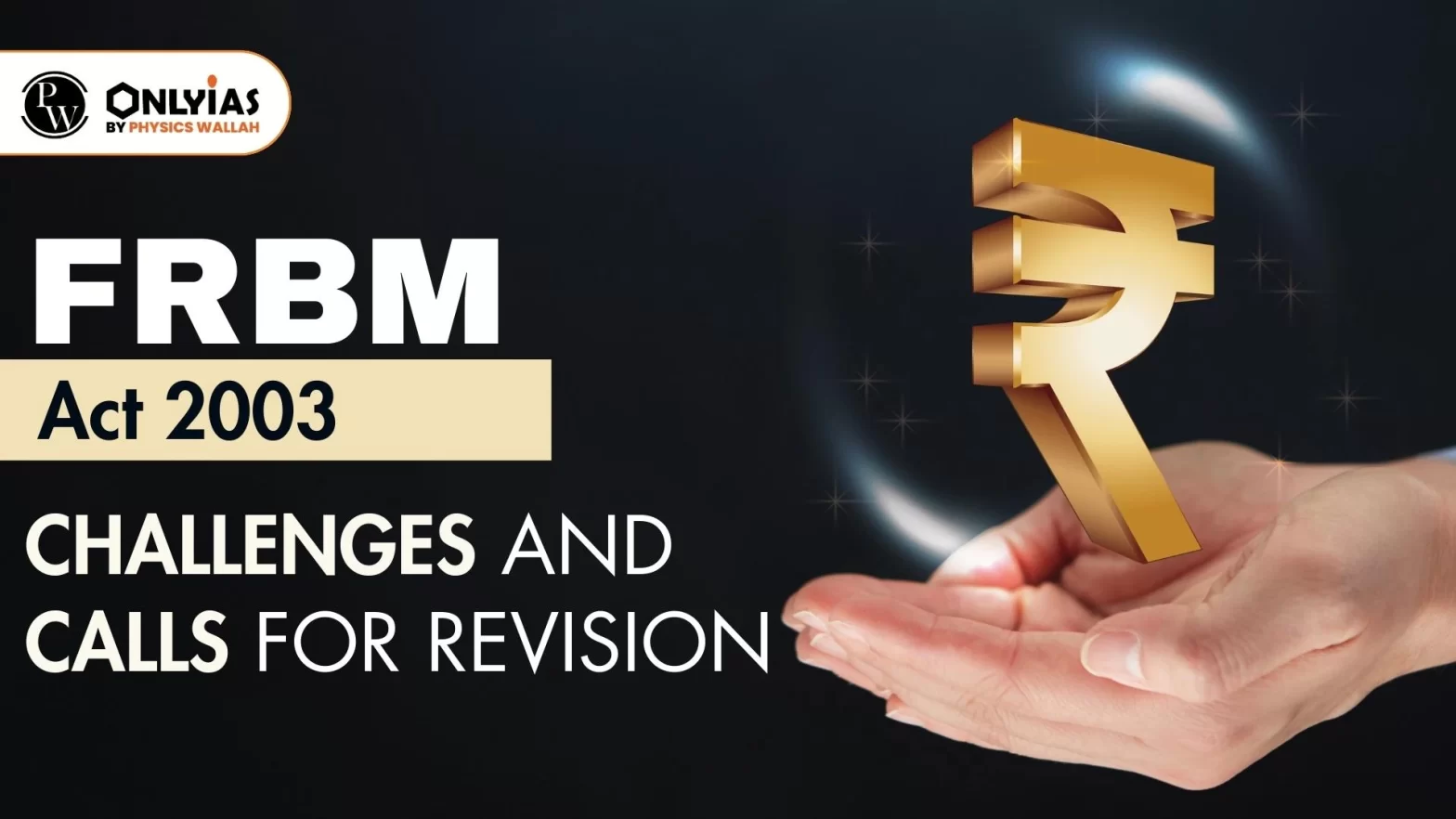Context:
- This article is based on an Editorial “Either Repeal or Revise the Country’s Fiscal Law” which was published in the Mint. Policymakers have argued that the government has not strictly adhered to the fiscal targets under the Fiscal Responsibility and Budget Management Act (FRBM Act), 2003 and have suggested either repealing or revising the law.
What is FRBM Act 2003?
- Mandatory Provision: The FRBM Act made it mandatory for the government to place the following along with the Union Budget documents in Parliament annually:
- Medium Term Fiscal Policy Statement: It lays down the limits on the size of the budget deficits for three years and targets for tax and non-tax receipts.
- Macroeconomic Framework Statement: The macroeconomic framework gives the government’s outlook on growth prospects of the economy.
- Fiscal Policy Strategy Statement: It explains how the current policies follow sound fiscal management principles and give reasoning for any deviation from the deficit targets set by it under the FRBM Act.
- Target for the Government: It sets a target for the Centre’s annual fiscal deficit ratio (FD) at 3% of gross domestic product (GDP).
- The states had to legislate their own FRBM Acts, limiting a state’s FD to 3% of its own GDP.
- Continuing the path of fiscal consolidation, the Government intends to bring the fiscal deficit below 4.5 per cent of GDP by 2025-26.
- Prohibition on Borrowing: The Act prohibits borrowing by the government from the Reserve Bank of India, thereby, making monetary policy independent of fiscal policy.
- The Act bans the purchase of primary issues of the Central Government securities by the RBI after 2006, preventing monetization of government deficit.
What are the challenges of FRBM Act, 2003?
- Reliance on Fixed Numbers: Focusing on a fixed target for the fiscal deficit restricts the government from dealing with dynamic situations typical of market economies.
- The requirement to achieve a fixed target has prevented fiscal policy from being countercyclical when needed.
- Escape Clauses: The FRBM Act has also been criticized because of incorporating imprecisely defined fiscal deficit escape clauses and limited accountability in the event of missed targets.
- Weak Linkage between Policy Setting and Implementation: This has hindered the ability to promptly and clearly adjust to changes in fiscal policy.
- The transparency and accountability framework has not been able to provide sufficient coverage or assessment of fiscal risks.
- Lack of Debt Ceiling Law: India’s fiscal rules are mainly focused on traditional budget balance rules with no debt ceiling law.
- Emerging best practices have moved toward a structural budget balance rule or an expenditure rule.
- Insufficient Assessment of Fiscal Risks: There was no attempt to assess the potential fiscal risks.
- For example: The impact of the announcement of the Pay Commission, the increase in commodity prices and the implications on fiscal policy, the implications of off-budget items such as contingent liabilities.
Suggestions by Policymakers
- Need for flexible fiscal policies, combining public and private spending.
- The arbitrary limits on budget deficits might not be the most effective approach.
Time for Clearly defined Escape Clauses and Strengthening the enforcement of Fiscal Rules by
- The establishment of independent fiscal councils
- Full-fledged fiscal stability reporting, addressing the coverage of off-budget items like contingent liabilities
- Improving linkages between fiscal policy and budget processes
- Sharing of responsibilities and coordination within tiers of government for stabilization and sustainability
- Introducing state credit ratings for measuring fiscal performance
Conclusion:
It’s time to update the fiscal rules to be more flexible and coordinated, ensuring a balance between discipline and adaptability in managing the country’s budget.
ALSO READ: BUDGET AND TAXATION
| Prelims Question (2018)
Consider the following statements:
1. The Fiscal Responsibility and Budget Management (FRBM) Review Committee Report has recommended a debt to GDP ratio of 60% for the general (combined) government by 2023, comprising 40% for the Central Government and 20% for the State Governments.
2. The Central Government has domestic liabilities of 21% of GDP as compared to that of 49% of GDP of the State Governments.
3. As per the Constitution of India, it is mandatory for a State to take the Central Government’s consent for raising any loan if the former owes any outstanding liabilities to the latter.
Which of the statements given above is/are correct?
(a) 1 only
(b) 2 and 3 only
(c) 1 and 3 only
(d) 1, 2 and 3
Ans: (c) |
![]() 30 Oct 2023
30 Oct 2023
